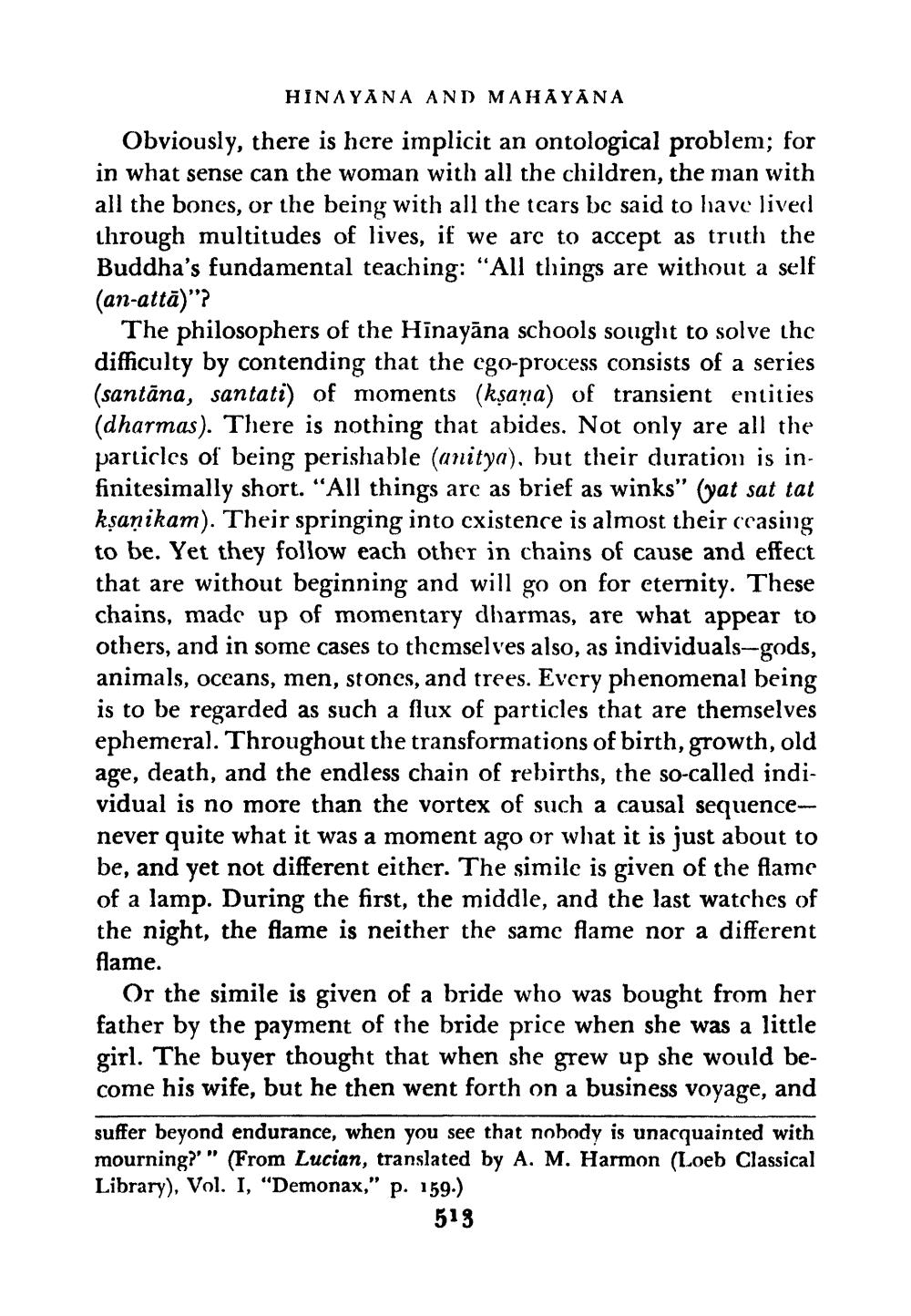________________
HINAYANA AND MAHAYANA
Obviously, there is here implicit an ontological problem; for in what sense can the woman with all the children, the man with all the bones, or the being with all the tears be said to have liver through multitudes of lives, if we are to accept as truth the Buddha's fundamental teaching: “All things are without a self (an-attā)"?
The philosophers of the Hinayāna schools sought to solve the difficulty by contending that the ego-process consists of a series (santāna, santati) of moments (kşaņa) of transient entities (dharmas). There is nothing that abides. Not only are all the particles of being perishable (anitya), but their duration is in. finitesimally short. “All things are as brief as winks" (yat sat tat kşaņikam). Their springing into cxistence is almost their ceasing to be. Yet they follow each other in chains of cause and effect that are without beginning and will go on for eternity. These chains, made up of momentary dharmas, are what appear to others, and in some cases to themselves also, as individuals-gods, animals, oceans, men, stones, and trees. Every phenomenal being is to be regarded as such a flux of particles that are themselves ephemeral. Throughout the transformations of birth, growth, old age, death, and the endless chain of rebirths, the so-called individual is no more than the vortex of such a causal sequencenever quite what it was a moment ago or what it is just about to be, and yet not different either. The similc is given of the flan of a lamp. During the first, the middle, and the last watches of the night, the flame is neither the same flame nor a different flame.
Or the simile is given of a bride who was bought from her father by the payment of the bride price when she was a little girl. The buyer thought that when she grew up she would become his wife, but he then went forth on a business voyage, and suffer beyond endurance, when you see that nobody is unacquainted with mourning?'" (From Lucian, translated by A. M. Harmon (Loeb Classical Library), Vol. I, “Demonax," p. 159.)
519




